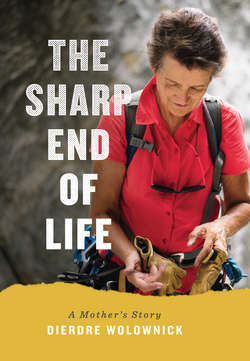Читать книгу The Sharp End of Life - Dierdre Wolownick - Страница 12
На сайте Литреса книга снята с продажи.
five
ОглавлениеOUR FIRST YEAR TOGETHER as a married couple was a whirlwind of exploration and travel as Charlie introduced me to his California. Every Friday, we would load camping gear into his little red Volkswagen Beetle and head somewhere wild. I was content to let him choose our destination, to share the places he loved. I was his eager student, along for the adventure.
The language Charlie used as we traveled around California intrigued me as no European language ever had. Alluvial fans. Adiabatic lapse rate. Rain shadow. Dry river. (If it’s dry, what makes it a river?) Teddy-bear cholla and Indian paintbrush and ocotillo and Joshua trees . . . I absorbed this new language eagerly, piecing together my new world, California, during our explorations.
Oleanders formed a soft, endless row of pastel colors down the middle of the road. Obsidian chunks lay on the pale ground like hardened drops of India ink at the base of gigantic columns of black basalt. The air was so dry that my water-based paints dried on the brush. Cute and fuzzy plants lodged barbs deep inside my foot. I learned fast why cowboys always wore boots.
In this world you could die if you didn’t prepare carefully.
Even the words I thought I already knew eluded me. We drove past signs that proclaimed “National Forest,” when there wasn’t a tree for miles. We camped in what he called a desert, surrounded by a solid, impossibly vivid carpet of multicolored wildflowers. Years later, I learned from the internet it was called a “super bloom” and that tourists drive for days to see it. We were just lucky.
But the first time I heard coyotes howling, I knew exactly what it was. I’d watched enough westerns as a kid. The chilling sound made me snuggle closer against Charlie, my rock in this crazy new world. As their song traveled across the hills that surrounded our campground, I understood for the first time the stories from my childhood about wolves in Poland, the old world. These weren’t wolves—I imagined a sound even more frightening—but the chill they raised in my gut made me need Charlie’s warmth.
In the high Sierra, weekend after weekend, we hiked and explored and scrambled, camping in a tent surrounded by ponderosa pines or Joshua trees or just sleeping out on a tarp in a clearing under a billion stars. Nestled in our double sleeping bag, we counted shooting stars or coyotes’ voices before we slept.
The eastern wall of the Sierra Nevada rises, suddenly, thousands of feet of granite towering above the already-high desert floor, its jagged spine snagging clouds and draining them. That wall of granite looms over Highway 395 for hundreds of miles as it snakes between mountains and desert. On one drive, Charlie pointed out a peak, barely visible between the others.
“There,” he pointed. “See it?”
“What?” I craned my neck to see where he was pointing.
“Whitney.” He told me it was the highest point in the Lower 48. A staggering 14,505 feet high.
How amazing it would be, I remember thinking, to stand at the top of that. The top of the world.
SUDAN. GUATEMALA. THE SAHARA. Charlie had traveled to places I’d read about, dreamed of all my life. I listened to his tales for hours. And exploring was such an integral part of our life together that it seemed normal to always be talking about travel—at the beach, in the car, in the supermarket, on campus. Where we would go next, or had gone, or wanted to go. It was our life. I never noticed that nothing else ever entered his conversations. I was too happy. I’d found the love of my life.
After that first whirlwind year of marriage, cracks began to appear in the veneer of our new life. Just tiny cracks at first, like the hairline webs that cover the bottom of your great-grandmother’s soup tureen or sugar bowl, but that don’t stop you from using it. Small, inappropriate remarks on his part that I found odd, but not odd enough to question out loud. I would never do that. He was my husband, we were a unit. But there were moments when I wished he would answer me, or answer the person who had spoken to him, that he would be civil, say something . . .
But what did I know about men, anyway, or love? Like so many other emotions, love had not been part of my childhood. It was unexplored territory. I had no map, no guideposts, nothing and no one to point to and say, “that’s how I want my life to be” or “that’s the kind of relationship, or the kind of man, I’m looking for.” So I overlooked those moments, those tiny striations in the fine china of our union. They wouldn’t stop us from using the bowl, the plate, the tureen into which we would ladle all the experiences of our life together. Our fine china was intact.
I would see that it remained that way.
